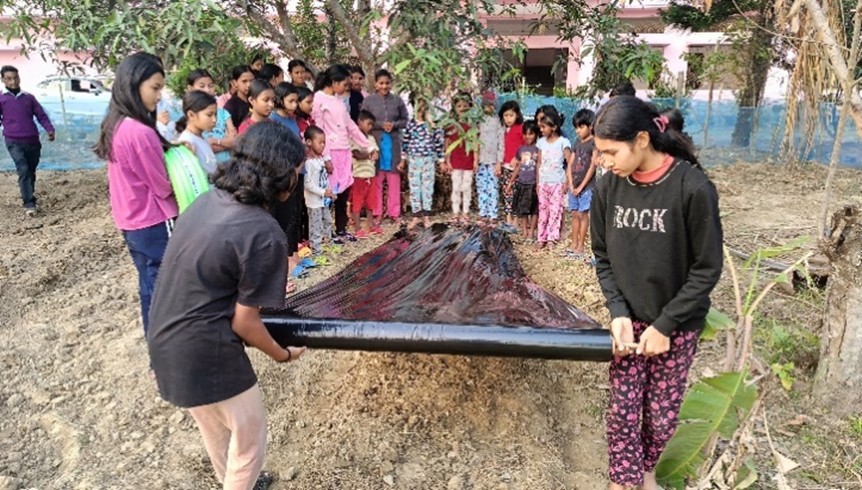Projects
The Ecological Hostels, Kitchen Gardens, and Preservation of Bio-Diversity project is an initiative aimed at educating young children on the principles of organic farming, environmental conservation, and biodiversity preservation. Implemented by GGSS across 26 hostels and 13 schools under the Archdiocese of Guwahati, this intervention is designed to instill sustainable agricultural practices and environmental stewardship among children. The activities of the project have been designed to be completed between 1st May 2023 to 31st May 2025.
Objectives of the Project
The primary goals of this initiative are:
• To enhance the knowledge and awareness of children regarding organic farming and its positive impact on human health and the environment.
• To educate children on biodiversity conservation, sustainable resource management, and eco-friendly living.
• To discourage the use of inorganic farming practices by highlighting their harmful effects.
• To encourage children to become responsible individuals who contribute to environmental preservation.
Key Activities and Interventions
1. Educational Programs: Children residing in hostels and studying in target schools receive structured learning sessions on organic farming techniques, eco-friendly agricultural practices, and biodiversity conservation.
2. Organic Kitchen Gardens: The project builds on the previously established organic farms in all 26 hostels, ensuring their maintenance and continued benefits to the children.
3. Hands-on Training & Demonstrations: Practical sessions allow children to engage in organic farming activities, including composting, seed preservation, and natural pest control.
4. Biodiversity Awareness Campaigns: Interactive workshops and awareness drives are conducted to sensitize children on the importance of protecting natural resources and fostering an eco-conscious mindset.
5. Sustainable Resource Management: The initiative promotes responsible consumption and sustainable agricultural practices to ensure food security and long-term ecological balance.
Expected Outcomes
• Improved awareness among children regarding sustainable agriculture and environmental conservation.
• Strengthened practical skills in organic farming through continuous learning.
• Increased adoption of eco-friendly practices by hostel inmates and school students.
• Development of responsible future citizens who actively contribute to protecting the environment.
This two-year project intervention under Phase III by GGSS (Guwahati Gana Seva Society) seeks to reinforce the learning of organic farming and biodiversity preservation for both existing and new hostel residents. By fostering a generation of environmentally conscious individuals, the initiative contributes to long-term ecological sustainability and food security.

